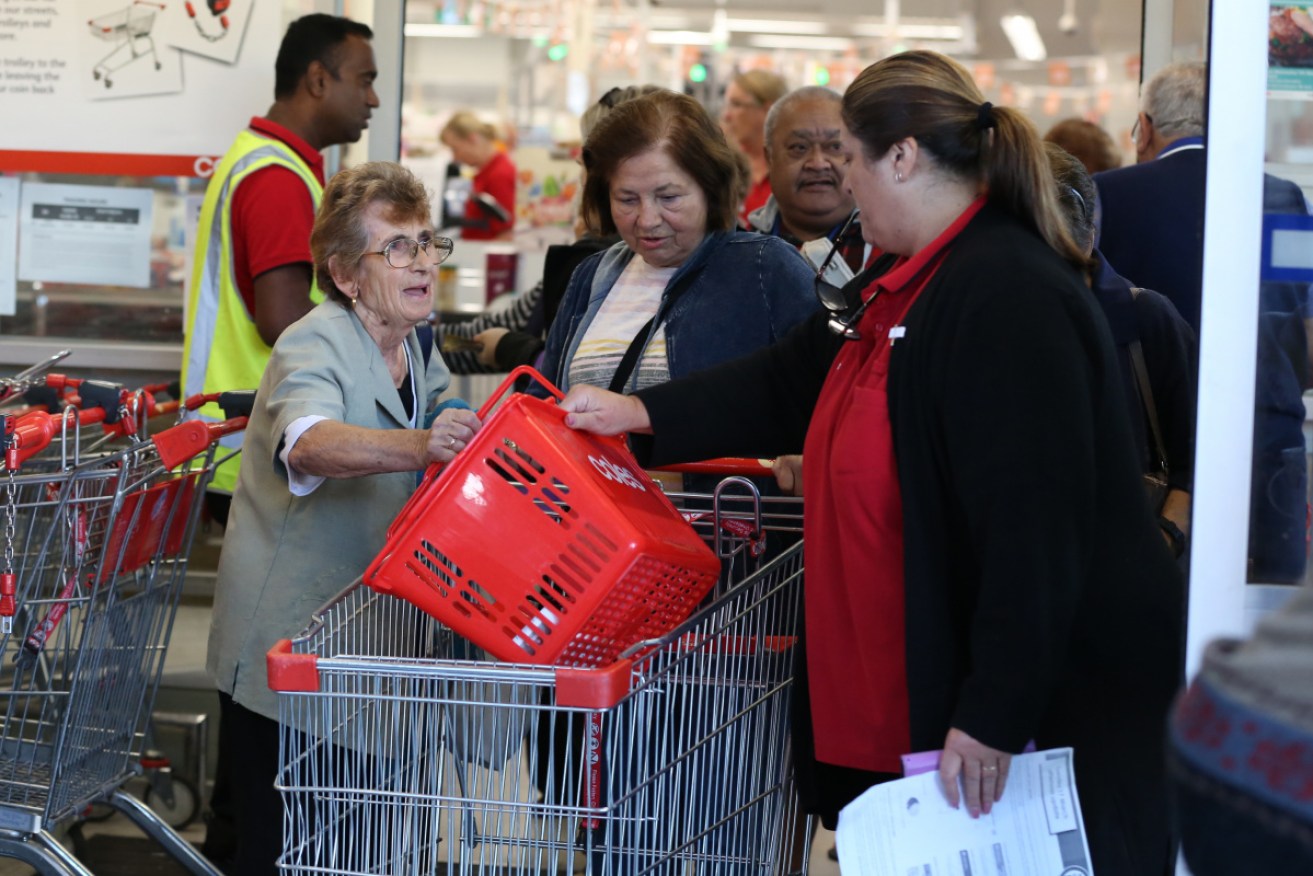Retail turnover records largest fall in history as panic buying ends


The end of virus-induced hoarding has brought retail sales crashing down. Photo: AAP
A sharp end to panic buying has led to the largest ever monthly fall in retail turnover.
Preliminary data released by the Australian Bureau of Statistics on Wednesday shows retail turnover plunged 17.9 per cent in April as consumers with overflowing pantries cut back on spending.
Monthly sales fell to $24.73 billion – 9.4 per cent lower than April 2019.
The record fall came immediately after a record rise, with earlier data showing turnover jumped 8.5 per cent in March, as consumers hoarded groceries and other essential supplies during the first wave of coronavirus panic.
Although the data shows spending fell across every industry, there were “particularly strong falls in food retailing, cafes, restaurants and takeaways, and clothing, footwear and personal accessories”.
“The food retailing industry, which saw a strong rise in March due to unprecedented demand, fell 17.1 per cent from March 2020,” the ABS said.
“Additional analysis indicates that the majority of products which rose substantially in March recorded falls in April 2020, however they remained at higher levels than April 2019.”
Meanwhile, supermarket and grocery store scanner data shows that monthly turnover in ‘non-perishable goods’, ‘perishable goods’ and ‘all other products’ fell by 23.7 per cent, 15.3 per cent and 24.5 per cent respectively in April when compared to March.
In March, non-perishable goods rose 39.0 per cent, perishable goods rose 21.6 per cent and all other products rose 30.5 per cent.
Economists had expected a large drop in sales in April following last month’s “unprecedented demand”, as they said consumers had brought forward spending rather than increasing their overall consumption.
But the record fall exceeded their average prediction of a 5 per cent drop.
“Having stocked up on products like toilet paper and pasta, and with home offices and gyms now set up, spending in those sectors fell away, while spending on clothing and footwear and at cafes, restaurants and takeaway continued to fall sharply,” EY chief economist Jo Masters said.
“Not surprisingly, the share of online sales continues to rise, with 10 per cent of turnover online in April.”
Ms Masters added that consumers were unlikely to significantly increase spending over the coming months as the economy was struggling.
“The outlook for retail spending remains challenged as consumers face high household debt, weak wage growth, elevated job insecurity and falling house prices,” she said.








